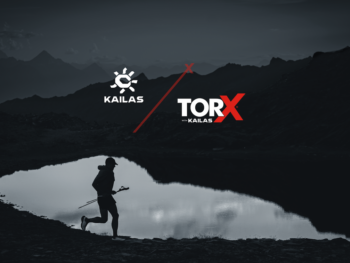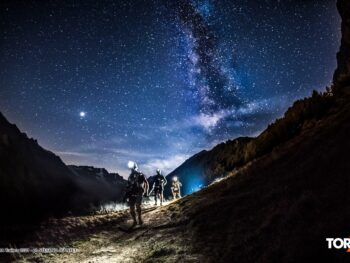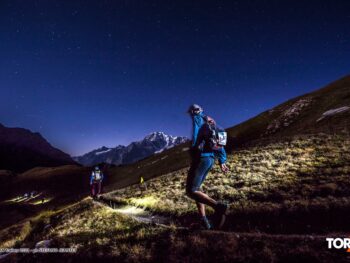Semi-serious analysis of a now endemic bug
My friend Mau asks me to write something about “Tor sickness”. What is this? This is a phenomenon which, for those who have experienced an adventure like the Tor des Géants and felt extraordinary emotions, makes it difficult to return to everyday life.
Normality now seems grey and disappointing; you are hungry for excitement like an addict going cold-turkey; regret and nostalgia pervade your existence. It’s because of this that every unfortunate person that you meet has to submit to listening to a monologue similar to that in the final scene of Blade Runner: “I have seen things you people wouldn’t believe".
It seems that after the race there has been a real epidemic of Tor Sickness. On the Spirito Trail forum, various posts have appeared on the subject. Some were decidedly amusing. As you see, I too am making light of it.
All the same if you laugh about it, it’s a sign that – underneath it all – there is a grain of truth. After all, some things never change.
“Heroic undertakings” are maladjusted to everyday life
We have known this since the times of Ulysses: who, returning to Penelope after years of pain – in a short space of time could not wait to set off again for his last voyage beyond the Pillars of Hercules. In decidedly more recent times I have discerned a similar dynamic in what I would call the “expedition syndrome” of mountaineers.
A hunger for stimulation and a maladjustment to society: these are the two basic ingredients for “return distress”.
It all makes me think of Stendhal Syndrome. Do you remember? It’s that unease which affects people visiting cities of art, who in some way feel bad when confronted with artistic masterpieces. Too much beauty. So much beauty, combined with the travel disorientation that the subject somehow loses his sense of identity.
What do “Tor sickness” and Stendhal Syndrome have in common?
I believe that’s there is something in the idea that “Tor sickness” too has something to do with an indigestion of beauty, with aesthetic excitement (or perhaps I should say ecstatic excitement).
Here, much more than in shorter competitions, the landscape ceases to be like an image on the television, the desktop on your PC, an abstract idea. There is a procession of valleys and peaks one after another.
And the mountains, the panoramas and the skies reveal themselves as what they are: real and tangible immensity, no longer just virtual icons. On the Gigatrail you have – nor better, your brain has – all the time necessary (perceptually speaking) to realise it: because time is dilated, it is no longer like those shorter races where the view is absorbed between glances at your stopwatch.
This is why your sense of identity vacillates. Because the ego cowers like a frightened dog when we finally remember that we are nothing before the power of the cosmos.
Our self-satisfied social, professional, or sporting identity is annihilated in the face of these forces.
And this is where disorientation comes in. We realise that we are just a tiny speck in the course of something much vaster. It’s true: wild nature produces strong emotions, which are hard to domesticate. No TV channel hopping can compare, you cannot switch over when watching the sublime. Sublime is that which produces a sense of amazement for the nature’s might and at the same time fear of our own finiteness (E. Kant, 1790). We do not often meet with the sublime in our society, we cannot buy it, we cannot create a virtual copy of it. So it follows that it should fill us with nostalgia.
Contact with the sublime cuts our enlarged, mistakenly inflated egos down to size, beating down the dangerous belief that we are the “centre of the universe”. And don't worry if it’s uncomfortable: it’s all healthy.
Our identity will rebuild itself on a more solid base: the base of challenges, with their own limits and goals, outside of a society which tends to hyper-protect us from facing reality.
© 2009-2024 by VDA Trailers SSDrl
Any dissemination for commercial purposes of photographic or video images captured during the event, via any means (internet, social networks, TV, press, magazines, etc.), without written authorisation from the organisation is prohibited. GTC®, GTC100™, GTC55™, GTC30™, TORX®, TOR®, Tor des Géants®, Tor des Glaciers™, Passage au Malatrà™, Tot Dret™, TOR450™, TOR330™, TOR130™, TOR100™ and TOR30™ are trademarks owned or used exclusively by VDA Trailers. Any communication of the event or use of images of it must be done in observance of the name of the event and registered trademarks, subject to agreement by the organisation.
Valle d’Aosta Trailers SSDrl | Via Roma, 98 | 11013 Courmayeur | CF/P.IVA 01139360075 | Nr. Iscr. Reg. Imprese AOSTA AO-70629




